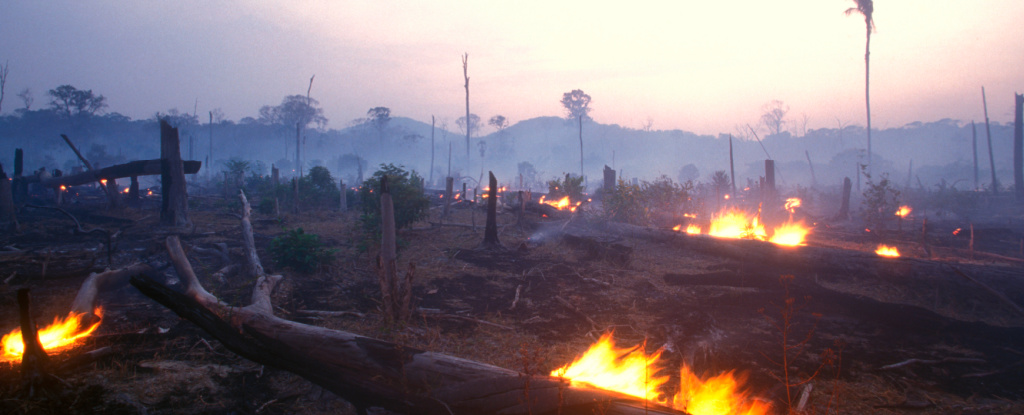Slowly and unsurely, humanity is weaning itself off coal. That's good because coal is the most carbon-intensive fossil fuel and a major driver of human-induced climate change.
But it's not good enough. According to a new study, humans are quitting coal too slowly to meet targets set under the Paris Agreement, the international treaty on climate change that aims to address global warming by curbing carbon dioxide emissions.
The goal of the Paris Agreement is to limit the rise in global average temperature to "well below 2 °C above pre-industrial levels," and to "pursue efforts" to keep the increase under 1.5 degrees.
Phasing out coal is a great way to do that since humans currently release about 15 billion tons of CO2 into the atmosphere every year, with coal accounting for about 40 percent of those emissions. Once it's up there, CO2 can linger for centuries, trapping solar heat and altering climates worldwide.
As part of their commitments under the Paris Agreement, many countries have plans to phase out coal, or at least use less of it. That's progress, and it's a giant leap from the state of international climate negotiations before the Paris Agreement was adopted in 2015.
Nonetheless, researchers say, we're moving in the right direction at the wrong speed.
At our current pace of phasing out coal, the authors of the new study report, we're on track to blow past the Paris Agreement's 2-degree limit for the maximum amount of global warming. Without big changes, they warn, we're headed for 2.5 or 3 degrees of warming.
This is not the first time researchers have come up with that prediction.
"More and more countries are promising that they will phase out coal from their energy systems, which is positive," says study co-author and environmental scientist Aleh Cherp from Lund University in Sweden.
"But unfortunately, their commitments are not strong enough," he adds. "If we are to have a realistic chance of meeting the 2-degree target, the phasing out of coal needs to happen faster, and countries that rely on other fossil fuels need to increase their transition rate."
To reach that conclusion, the researchers analyzed plans from 72 countries that have pledged to phase out coal by 2050.
The good news is it's still possible to avoid 2 degrees of warming. But only in the best-case scenarios, the researchers say, in which both China and India begin phasing out coal in five years.
Even then, they add, we would only stay below 2 degrees of warming if China and India adopt ambitious plans, at least matching the pace of the UK's reductions so far and exceeding the cuts Germany has pledged to make.
Under other scenarios, which the researchers call more realistic, Earth is on track for global warming of 2.5 to 3 degrees.
Dozens of countries have fallen behind on their Paris Agreement pledges, with a 2021 report finding Gambia is the only country currently on track.
Climate change is already wreaking havoc well before 2 degrees of warming, but scientists widely predict even worse consequences as we approach and pass that line.
This much warming is unprecedented in human history, but Earth has seen comparable warm periods long ago, offering us some clues about what to expect.
The loss of Antarctica's ice sheet could raise sea levels by 20 meters, for example, while people worldwide face incessant disasters ranging from heatwaves and megadroughts to superstorms and glacial floods, along with lower food security and higher risk of pathogenic disease.
Despite the rapid growth of renewable energy, and the increasing taboo of coal-fired power plants, coal is proving a difficult habit to kick.
Coal use is gradually declining in many countries, and after a 3.1 percent drop in 2020, global coal consumption increased by 1.2 percent in 2022, according to the International Energy Agency, pushing the world's yearly coal use beyond 8 billion metric tons for the first time.
Global CO2 emissions are also still increasing, rebounding from a pandemic-related low in 2020 to new highs in 2021 and 2022. CO2 emissions from coal rose 1.6 percent in 2022, according to the IEA, and coal remains the primary culprit behind rising CO2 emissions overall.
"The countries' commitments are not sufficient, not even among the most ambitious countries. In addition, Russia's invasion of Ukraine risks jeopardizing several of the countries' commitments", says Jessica Jewell, an environmental scientist at the Chalmers University of Technology.
Countries have long resisted quitting coal for economic reasons, since it's a cheap energy source. As climate change increasingly makes clear, however, coal is much costlier than it seems.
Reducing CO2 emissions will save lives and save money, and research has shown it will create jobs. Replacing coal may not be easy, but it is dramatically cheaper than the alternative.
The study was published in IOPscience.
- Nuclear Fallout
-

 1
1



Recommended Comments
Join the conversation
You can post now and register later. If you have an account, sign in now to post with your account.
Note: Your post will require moderator approval before it will be visible.